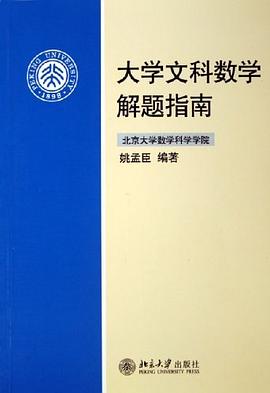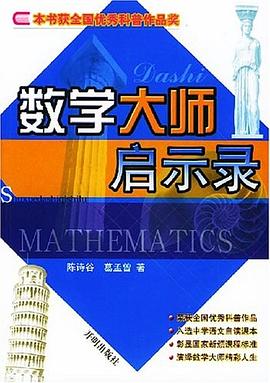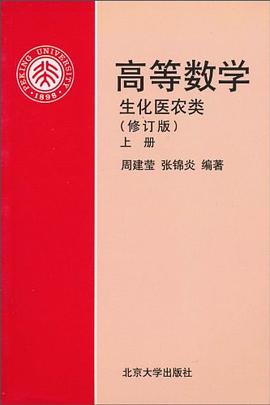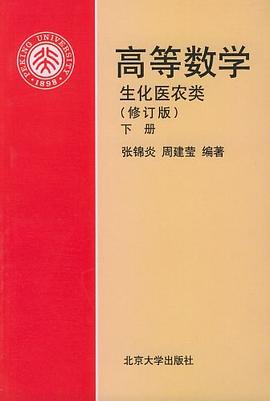

具体描述
"本书作者是IBM公司财务分析师,具有多年外企财务工作经验。本书不仅介绍了如何记账,还以外企财务工作所涉及的各类要点为基础,讲述外企财务工作需处理的日常工作事项,部门沟通内容,与外籍管理人员以及总部沟通时应该掌握的基本表达方式等。本书针对外企在中国的实际情况,为想进外企和那些想在外企中有所突破的出纳、会计、审计、税务规划、财务分析等岗位工作人员,提供了一个可实际操作的工作指南。
本书用实际工作情景模拟展示语言的灵活性,把语言跟财务工作融为一体。本书中的简历和面试部分内容,提供如何使用简洁而准确的语言清楚地表达自己的教育、工作背景,并技巧性的突出自己的竞争优势。本书附录精编了大量外企常用缩写词及含义,可供即查即用。"
"Practial Finance with English
日常财务工作,中英文双语讲解
实际沟通要领,仿真情景模拟展示
英文技巧+财务技能,一册轻松搞定"
作者简介
"朱秀前
中国注册会计师CICPA、英国特许会计师ACCA资深会员,ACCA讲师,英国牛津布鲁克斯大学Oxford Brookes University MBA。丰富的实务工作及教学经验,曾任知名跨国企业中国区财务总监、并购部经理等职务,现任IBM亚太地区管理总部Finance Analysis Manager。"
目录信息
财务日常工作篇 Daily business topics in finance
第一章 基础会计实务Accounting in practice2
第一节 原始资料、原始记录、流水账
Sources,records of prime entry2
第二节 复式记账原理、会计记账和分类账户Double entry rule,accounting bookkeeping and ledger accounts4
第三节 存货Inventory8
第四节 收入Revenue 13
第五节 费用Expenses16
第六节 坏账Irrecoverable debts and allowances18
第七节 或有事项及预计负债Provisions and contingencies21
第八节 非流动资产Non-current assets23
第九节 建造合同Construction contracts31
第二章 成本知多少 Cost management33
第一节 成本聚焦Focus on cost33
第二节 成本与决策Cost and decision making41
第三章 包容万千的全面财务预算Master financial budgeting47
第一节 全面财务预算体系简介Overview of master financial budget system47
第二节 全面财务预算的作用The master budget and its function50
第三节 财务预算的编制方法Budgeting approaches50
第四节 预算的参与Participation in budget setting55
第四章 至关重要的内部控制Internal control58
第一节 什么是内部控制What is internal control58
第二节 电子信息系统背景下的内部控制Internal control in computer information systems(CIS)environment63
第三节 销售环节内部控制Internal control in sales and revenue66
第四节 采购环节内部控制Internal control in purchase70
第五节 员工薪酬环节内部控制Internal control in compensation73
第六节 资金管理环节内部控制Internal control in cash management74
第七节 存货及其他资产环节内部控制Internal control in inventory and other assets management75
第八节 《萨班斯-奥克斯利法案》Sarbanes-Oxley Act77
第五章 基本财务报告 Basic financial reports79
第一节 资产负债表Balance sheet79
第二节 利润表Income statement82
第三节 现金流量表Cash flow statement84
第四节 所有者权益变动表Statement of changes in equity87
第五节 会计政策说明及附注Accounting policies and explanatory notes87
第六章 必不可少的税务筹划 Tax planning89
第一节 中国税收征管体系简介Overview of tax system and administration91
第二节 企业所得税Corporate Income Tax93
第三节 增值税Value Added Tax(VAT)104
第四节 营业税Business Tax(BT)107
第五节 消费税Consumption Tax108
第六节 关税Customs Duty108
第七节 土地增值税Land Appreciation Tax(LAT)109
第八节 个人所得税Individual Income Tax(IIT)110
第七章 审计精要 The grip of auditing115
第一节 审计目标与审计范围The purpose and scope of audit115
第二节 职业道德与执业规范Professional ethics and codes of conduct117
第三节 审计计划Audit planning119
第四节 内部控制的研究与评价Research and appraisal of internal control system120
第五节 审计证据及审计工作底稿Audit evidence and the working paper124
第六节 审计抽样电子辅助技术Audit sampling and computer assisted audit techniques127
第七节 审计报告Audit reports131
第八章 投资决策 Investment decision138
第一节 投资管理的基本概念General concept of investment138
第二节 投资项目评价:不考虑货币的时间价值Capital investment appraisal without consideration of time value of money139
第三节 投资项目评价:考虑货币的时间价值Capital investment appraisal with consideration of time value of money141
第九章 财务分析、规划与预测 Financial analysis,planning and projecting144
第一节 财务分析Financial analysis 144
第二节 财务规划和预测Financial planning and projecting155
升职发展篇 Moving up the corporate ladder
第十章 如何做好与非财务人员的沟通 Communicating with non-financial staff160
第一节 与销售部门的沟通Communicating with sales160
第二节 与研发部及后勤部门的沟通Communicating with R&D and back office163
第三节 与市场营销部门的沟通Communicating with marketing164
第四节 与执行层沟通Communicating with executives165
第十一章 如何做好绩效管理 Performance management167
第一节 绩效考核与管理行为Management behavior and performance measurement167
第二节 绩效考核的财务指标Financial performance indicators(FPI)169
第三节 绩效考核的非财务指标Non-financial performance indicators(NFPI)171
第四节 整体绩效观integrated performance view174
第十二章 进入管理层难吗 Entering the senior management circle177
第一节 领导力Leadership177
第二节 企业组织Understanding business organization183
第三节 企业运作流程管理Understanding operations business process management187
第四节 战略管理Strategic management189
附录A 常见缩写 Abbreviations196
附录B 词汇表 Vocabulary211
附录C 短语及习惯表达总汇 Useful expressions217
附录D 求职面试指南 Job seeking225"
· · · · · · (收起)
读后感
评分
评分
评分
评分
用户评价
长期以来,我在阅读外文财务报告时,总会遇到一些看似熟悉却又难以准确把握的细微差别,尤其是在理解一些关于“风险管理”和“内部控制”的专业术语时,更是感到力不从心。《外企财务英语一本通》的出现,仿佛为我点亮了一盏明灯。这本书在“风险管理”部分的阐述尤为出色,它系统地介绍了各种财务风险,例如“credit risk”、“market risk”、“liquidity risk”和“operational risk”,并提供了大量实用的英文表达,用于描述和分析这些风险。我特别喜欢书中关于“信用风险管理”的章节,它不仅解释了“credit rating”、“collateral”、“covenants”等概念,还详细剖析了如何撰写“credit risk assessment report”,包括对借款人财务状况的分析、还款能力的评估以及风险缓解措施的建议。这些内容对于我日常工作中需要评估供应商和客户的信用状况非常有帮助。同样,在“内部控制”方面,这本书也提供了非常全面的指导。它详细介绍了“internal control framework”,如COSO模型,以及“control activities”、“risk assessment”、“information and communication”和“monitoring”等关键要素。书中还提供了大量关于如何撰写“internal control deficiencies report”和“management letter”的范例,这对于我理解内部审计报告和配合审计工作非常有启发。这本书的优点在于它不仅仅是知识的传授,更是能力的培养,它教会我如何用专业、准确的财务英语来表达复杂的概念,从而提升我的专业素养和国际视野。
评分我一直觉得,财务工作就像是一门艺术,而专业的财务英语则是描绘这门艺术的画笔。《外企财务英语一本通》这本书,就像是为我量身定制的画笔套装,让我能够更自信、更精准地表达我的专业观点。这本书在“投资分析”和“财务规划”方面的讲解,是我特别看重的部分。它不仅详细介绍了“investment appraisal techniques”,如“Net Present Value (NPV)”、“Internal Rate of Return (IRR)”和“Payback Period”,还提供了大量关于如何撰写“investment proposal”和“feasibility study report”的范例。我特别喜欢书中对于“NPV”和“IRR”的深入剖析,它不仅解释了这些指标的计算方法,还详细分析了它们在评估项目可行性时的重要性,以及在不同情境下的应用。同样,在“财务规划”方面,这本书也提供了非常全面的指导。它详细介绍了“financial forecasting”和“financial modeling”的基本概念,以及“balance sheet forecasting”、“income statement forecasting”和“cash flow forecasting”等方法。书中还提供了大量关于如何撰写“long-term financial plan”和“capital structure analysis”的范例,这对于我为公司制定长远发展战略提供了宝贵的参考。这本书的优点在于它能够将枯燥的数字和理论,通过精准的财务英语转化为清晰、有说服力的文字,让我能够更好地与国际同行进行交流和协作。
评分在日常的财务工作中,我经常需要与海外的合作伙伴进行沟通,无论是项目洽谈、合同签订还是账单核对,都需要精准的财务英语来确保信息的准确传达。《外企财务英语一本通》的出现,彻底改变了我过去那种“词不达意”的窘境。这本书在“预算管理”和“成本控制”方面的讲解尤其令我印象深刻。它不仅清晰地解释了“budgeting process”的各个环节,例如“budget preparation”、“budget approval”、“budget execution”和“budget variance analysis”,还提供了大量关于如何撰写“budget proposal”和“budgetary control report”的实用模板。我尤其欣赏书中对于“零基预算”(Zero-Based Budgeting)和“滚动预算”(Rolling Budget)的详细对比和分析,它不仅解释了这些预算方法的优缺点,还提供了相应的英文表达,帮助我理解不同预算策略的精髓。在“成本控制”方面,这本书也给了我极大的启发。它深入剖析了“fixed costs”、“variable costs”、“direct costs”、“indirect costs”以及“overhead costs”等概念,并详细介绍了“cost accounting methods”,如“activity-based costing (ABC)”和“standard costing”。书中还提供了许多关于如何撰写“cost reduction proposal”和“variance analysis report”的范例,这对于我优化公司成本结构,提升盈利能力提供了宝贵的参考。这本书的优点在于它能够将理论知识与实际操作紧密结合,让我能够快速掌握并运用到实际工作中,极大地提升了我的工作效率和专业性。
评分作为一名身处外企财务一线的从业者,我深知掌握地道的财务英语对于提升职业竞争力至关重要。《外企财务英语一本通》这本书,对我而言,就好似一本“实战型财务英语指南”,帮助我更好地融入国际化的工作环境。书中关于“企业估值”和“尽职调查”的章节,是我特别关注的内容。它不仅详细解释了“valuation methodologies”,如“discounted cash flow (DCF) analysis”、“comparable company analysis (CCA)”和“precedent transaction analysis (PTA)”,还提供了大量关于如何撰写“valuation report”和“due diligence report”的范例。我特别欣赏书中对于“DCF分析”的深入讲解,它不仅解释了现金流预测、折现率计算和终值确定的关键步骤,还详细分析了不同假设对估值结果的影响,这为我理解企业价值评估提供了坚实的基础。同样,在“尽职调查”方面,这本书也提供了非常全面的指导。它详细介绍了“financial due diligence”、“legal due diligence”和“commercial due diligence”等关键环节,以及相关的英文表达,帮助我更好地理解和执行尽职调查工作。这本书的优点在于它能够将复杂、专业的估值和尽职调查方法,通过清晰、地道的财务英语表达出来,让我能够更自信地参与到公司的投融资决策和并购活动中,为公司的战略发展贡献力量。
评分我一直以来在工作中都会接触到外企的财务报告和各类邮件,虽然我本身是财务专业出身,但每次面对那些精炼、准确且极具商务色彩的英文表达时,总觉得有些力不从心,仿佛隔着一层薄纱,难以完全领会其深层含义。这次机缘巧合,我“翻阅”了《外企财务英语一本通》,虽然这是一本看似专业的工具书,但它带给我的震撼和启发却是多方面的。首先,这本书的编排结构非常人性化,它并没有一开始就罗列大量枯燥的词汇表,而是从最贴近实际工作场景的对话和案例入手,比如客户沟通、内部会议、项目审批等。在这些场景中,书中巧妙地融入了地道的财务英语表达,让你在不知不觉中学习。我特别喜欢其中关于“现金流管理”的章节,它不仅解释了“cash flow statement”的构成要素,还详细剖析了“operating activities”、“investing activities”和“financing activities”的英文表达及其在不同语境下的细微差别。更让我惊喜的是,它还提供了许多关于如何撰写清晰、简洁的现金流分析报告的范例,这对于我这种需要经常向海外同事汇报财务状况的人来说,简直是雪中送炭。书中对“应收账款”和“应付账款”的讲解也同样细致,特别是关于“credit terms”、“payment terms”、“overdue accounts”等词汇的用法,解释得非常到位,并结合了实际的商务谈判场景,让我对如何在国际商务中有效处理信用和付款问题有了更深的理解。这本书的优点在于它不仅仅是字典,更像是经验丰富的导师,指导你如何在实际工作中运用这些财务英语,避免那些可能导致误解的表达。
评分作为一名在跨国公司工作的初级财务分析师,我深切体会到掌握专业的财务英语对于职业发展的重要性。《外企财务英语一本通》的出现,无疑为我提供了一个极佳的学习平台。我之前总是纠结于那些晦涩难懂的财务术语,特别是涉及到一些高级财务概念时,更是感到力不从心。这本书的一大亮点是它对“盈利能力分析”的深入探讨。它不仅解释了“gross profit”、“operating profit”、“net profit”等基本概念,还详细介绍了“profitability ratios”,如“gross profit margin”、“operating profit margin”、“net profit margin”以及“return on equity (ROE)”和“return on assets (ROA)”等。书中通过生动的案例,将这些比率的计算方法和其在评估公司经营效率和股东回报方面的意义清晰地呈现出来。我特别欣赏书中关于“毛利率波动原因分析”的讲解,它列举了多种可能导致毛利率变动的原因,并提供了相应的英文表达,例如“cost of goods sold (COGS)”的增加、原材料价格的波动、产品组合的变化等等。这些都是我日常工作中经常需要分析和汇报的内容。此外,书中关于“资产负债表”的解读也让我受益匪浅,它详细阐述了“current assets”、“non-current assets”、“current liabilities”和“non-current liabilities”等科目,并重点分析了“working capital management”的重要性,以及相关的英文表达,如“inventory turnover”、“accounts receivable turnover”和“accounts payable turnover”。通过学习这本书,我不仅拓宽了财务词汇量,更重要的是掌握了如何更准确、更专业地进行财务分析和沟通,这对我提升工作效率和赢得同事的信任至关重要。
评分我从事财务工作多年,深知在跨国公司环境下,准确掌握财务英语对于工作的顺利开展至关重要。《外企财务英语一本通》这本书,犹如一位循循善诱的导师,为我打开了财务英语沟通的新篇章。书中关于“并购融资”和“资本市场”的章节,对我而言更是犹如久旱逢甘霖。它详细阐述了“merger and acquisition (M&A) financing”的各种方式,例如“debt financing”、“equity financing”和“hybrid financing”,并提供了大量关于如何撰写“M&A deal proposal”、“valuation report”和“pro forma financial statements”的范例。我特别欣赏书中对于“股权融资”(Equity Financing)的深入分析,它不仅解释了“initial public offering (IPO)”和“seasoned equity offering (SEO)”等概念,还详细分析了“underwriting”、“roadshow”和“prospectus”等流程,这对于我理解资本市场的运作机制非常有帮助。同样,在“资本市场”方面,这本书也提供了非常全面的指导。它详细介绍了“stock market”、“bond market”和“derivatives market”等概念,以及相关的英文表达,帮助我更好地理解和分析市场动态。这本书的优点在于它能够将复杂、抽象的资本市场概念,通过清晰、专业的财务英语表达出来,让我能够更自信地参与到公司的资本运作中,为公司的发展贡献力量。
评分在与海外客户和供应商打交道的过程中,我深切体会到准确无误的财务英语沟通的重要性,一个小小的词汇误解都可能导致重大的经济损失。《外企财务英语一本通》这本书,就像是我的“秘密武器”,帮助我自信地应对各种商务场景。这本书在“合同谈判”和“交易结算”方面的实用性让我印象深刻。它不仅详细解释了“contract terms”和“payment terms”的关键要素,如“delivery terms”、“incoterms”、“payment methods”和“settlement procedures”,还提供了大量关于如何撰写“purchase order”、“invoice”、“statement of account”和“remittance advice”的范例。我特别欣赏书中关于“Incoterms”(国际贸易术语解释规则)的详细讲解,它清楚地界定了不同贸易术语下的风险、成本和责任划分,这对于我理解和处理国际贸易中的各种运输和保险事宜至关重要。同样,在“交易结算”方面,这本书也提供了非常全面的指导。它详细介绍了“wire transfer”、“letter of credit (LC)”和“documentary collection”等支付方式,以及相关的英文表达,帮助我理解和操作复杂的国际支付流程。这本书的优点在于它能够将理论知识与实际操作紧密结合,让我能够快速掌握并运用到实际工作中,极大地提升了我的工作效率和专业性,减少了因语言障碍而产生的风险。
评分作为一名经常需要与海外公司进行财务对账和合并报表工作的财务人员,我一直致力于提升自己在这方面的专业技能和语言能力。《外企财务英语一本通》这本书,就像是我的“财务英语宝典”,让我受益匪浅。这本书在“合并报表”和“内部审计”方面的讲解,是我特别看重的部分。它不仅详细解释了“consolidation process”的关键步骤,如“intercompany transactions elimination”、“foreign currency translation”和“non-controlling interests accounting”,还提供了大量关于如何撰写“consolidation report”和“elimination journal entries”的范例。我特别欣赏书中对于“外币折算”(Foreign Currency Translation)的深入剖析,它不仅解释了不同汇率(如即期汇率、历史汇率、平均汇率)的应用场景,还详细分析了因汇率变动产生的“foreign exchange gains/losses”的会计处理方法。同样,在“内部审计”方面,这本书也提供了非常全面的指导。它详细介绍了“internal audit plan”、“audit program”、“audit evidence”和“audit conclusion”等概念,以及相关的英文表达,帮助我理解和协助内部审计工作。这本书的优点在于它能够将复杂、晦涩的财务概念,通过精准、专业的财务英语表达出来,让我能够更有效地与国际同行进行沟通和协作,提升了我的专业素养。
评分在跨国企业的日常运营中,税务筹划和合规性管理是财务部门的核心职能之一,而精准的财务英语则是完成这些工作的关键。《外企财务英语一本通》这本书,就如同一本“税务英语百科全书”,为我提供了宝贵的指导。书中关于“国际税务筹划”和“税务合规”的讲解,尤其令我印象深刻。它不仅详细解释了“tax planning strategies”和“tax compliance requirements”,还提供了大量关于如何撰写“tax return”和“tax audit report”的范例。我特别欣赏书中对于“transfer pricing”(转让定价)的深入剖析,它不仅解释了转让定价的基本原则,如“arm's length principle”,还详细分析了不同转让定价方法的优缺点,如“comparable uncontrolled price (CUP) method”、“resale price method”和“cost plus method”,这对于我理解和应对跨国企业的税务挑战至关重要。同样,在“税务合规”方面,这本书也提供了非常全面的指导。它详细介绍了不同国家和地区的税务法规,以及相关的英文表达,帮助我更好地理解和遵守各地的税务要求。这本书的优点在于它能够将繁琐、细致的税务知识,通过清晰、专业的财务英语表达出来,让我能够更高效、更准确地完成税务工作,为公司规避税务风险,实现可持续发展。
评分Acca很好的辅助书
评分Acca很好的辅助书
评分不好看 没意思 作者水平太洼
评分附录D求职面试指南、作者linkedin上的履历,挺典型的
评分不好看 没意思 作者水平太洼
相关图书
本站所有内容均为互联网搜索引擎提供的公开搜索信息,本站不存储任何数据与内容,任何内容与数据均与本站无关,如有需要请联系相关搜索引擎包括但不限于百度,google,bing,sogou 等
© 2026 book.wenda123.org All Rights Reserved. 图书目录大全 版权所有




















